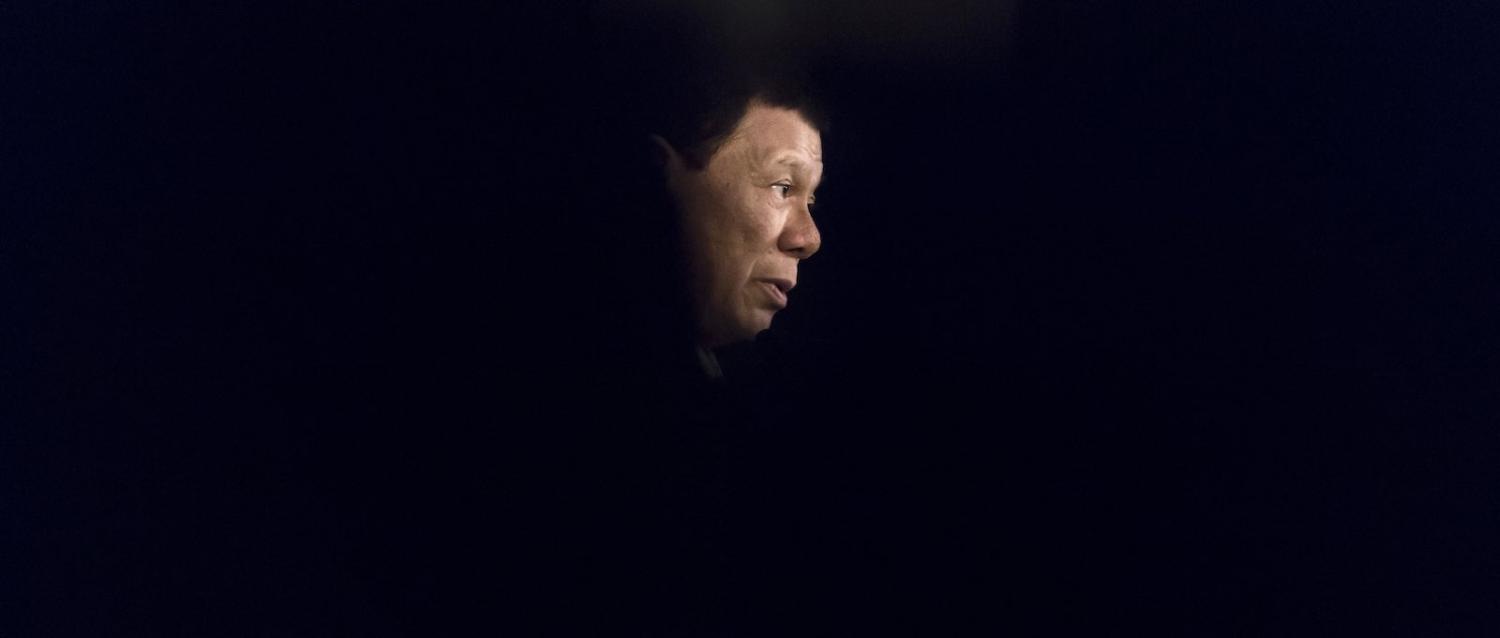Rodrigo Duterte assumed the Philippines presidency in 2016 with a promise to promote an “independent” foreign policy. Yet as he detaches the Philippines from the United States, Duterte is seemingly yielding to China. His own statements exposed the irony of his supposed independent approach when he referred to the US and declared: “Do not treat us like a doormat because you’ll be sorry for it. I will not speak with you. I can always go to China.”
Duterte’s carries accumulated frustrations with the US. He views it as the “enemy”, based on his long-held perceptions of American colonial subjugation of the Philippines. Moreover, Duterte abhorred the criticism levelled by the Obama administration over his so-called war on drugs involving extrajudicial killings and human rights violations.
Duterte’s frustration was apparent when he suddenly announced in February the abrogation of the Visiting Forces Agreement (VFA), which allows US troops to be stationed in the Philippines on a rotational basis. The decision was triggered after the US cancelled visas of several of Duterte’s political allies involved in the war on drugs. Duterte eventually called a six-month suspension for the cancellation of the VFA beginning in June, after the Philippine Senate and other government officials collectively called for a multi-agency review instead.
These factors also fit into Duterte’s scepticism about the US commitment of military support under the 1951 Mutual Defense Treaty. He doubts that the US will come to the aid of the Philippines in the event of an armed conflict with China in the South China Sea. He also implied that the US government was not helpful in preventing Chinese illegal construction of artificial islands:
If America cared, it would have sent its aircraft carries and missile frigates the moment China started reclaiming land in contested territory, but no such thing happened.
Duterte’s scepticism about the US dovetails into a fawning approach towards China. This was evident when he ordered the Philippine military to scale down its joint activities with the US from the previous combat drills directed at a hypothetical threat emanating from the South China Sea into humanitarian assistance and disaster relief and counter-terrorism exercises. Duterte also blocked US warships from using Philippine bases during any freedom-of-navigation operations and announced that the country would not participate in the regular naval exercises with the US, Australia and other allies, to avoid antagonising the Chinese.
For all his radical shifts in Philippine foreign policy in the name of independence, Duterte has led the country away from the clutches of the US into the arms of China.
In his four years in office, Duterte has led the Philippines to profit in the good graces of a powerful China, rather than be the target of its wrath. It is no surprise then that his government downplayed the Philippines’ victory in 2016 at the Permanent Court of Arbitration that invalidated China’s historic claims over the South China Sea. Duterte subsequently secured US$24 billion in loans, credit and investments pledges from China to fund infrastructure projects under his “Build, Build, Build” program. And in an attempt to win priority access to a Covid-19 vaccine developed by China, Duterte has maintained his non-confrontational stance on maritime issues, even with recent Chinese military drills and illegal naming of features and districts in the contested waters. (He even volunteered to be tested with a Russian vaccine.)
For all his radical shifts in Philippine foreign policy in the name of independence, Duterte has led the country away from the clutches of the US into the arms of China. This is a precarious strategy that goes against the general notion of an independent foreign policy which is not for or against any state, but having equidistant relations with all. Duterte’s approach is further misguided in that it prioritises a view of the country’s economic agenda at the expense of protecting its maritime interests. He effectively relegates Philippines-US security arrangements with Philippine-China economic ties as the country’s most important bilateral relations. Yet such compromise is unnecessary and a strategic miscalculation, as both economic and security interests are equally important and not mutually exclusive.
Duterte’s policy diminishes the Philippines’ credibility as an ally to the US and reinforces perceptions of subservience to China. Instead of achieving an independent stance, Duterte has only succeeded in making the Philippines appear more anxious about its place in the world.

